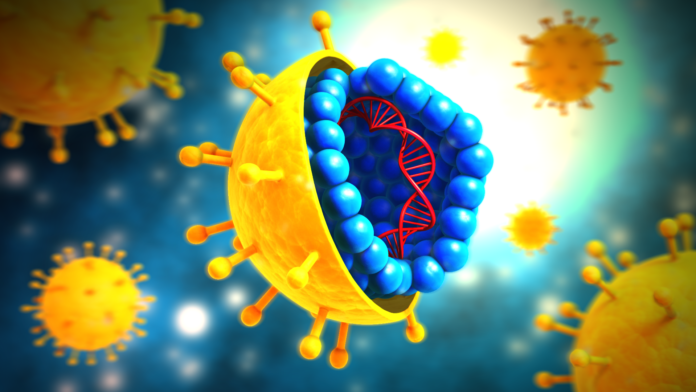Study presented at the annual meeting of the American Society of Clinical Oncology (ASCO) says it may be possible to detect lung cancer early by a blood test
It may be possible to detect early stage lung cancer with the help of a sophisticated blood test that analyses free-floating DNA in blood.
Findings from the Circulating Cell-Free Genome Atlas (CCGA) study were presented at the 2018 American Society of Clinical Oncology (ASCO) Annual Meeting in Chicago. Sequencing of blood-borne DNA was used for the early detection of lung cancer
“We’re excited that the initial results from the CCGA study show it is possible to detect early-stage lung cancer from blood samples using genome sequencing,” said lead study author Geoffrey R. Oxnard, MD, of Dana-Farber Cancer Institute. “There is an unmet need globally for early-detection tests for lung cancer that can be easily implemented by health-care systems. These are promising early results and the next steps are to further optimize the assays and validate the results in a larger group of people.”
According to the Indian Council of Medical Research, in India, lung cancer constitutes 6.9 per cent of all new cancer cases and 9.3 percent of all cancer related deaths in both sexes
Lung cancer is one of the commonest causes of cancer and cancer related deaths all over the world. It accounts for 13 per cent of all new cancer cases and 19 percent of cancer related deaths worldwide. According to the Indian Council of Medical Research, in India, lung cancer constitutes 6.9 per cent of all new cancer cases and 9.3 percent of all cancer related deaths in both sexes. Lung cancer is the commonest cancer and cause of cancer related mortality in men with the highest reported incidences from Mizoram in both males and females.
Survival rates depend on early diagnosis in most cancers including lung cancers. A blood test that could be done through a simple blood draw at the doctor’s office could potentially have a major impact on survival. Data from studies in India shows that most lung cancer cases are only diagnosed in stages III and IV resulting in poor outcomes.
Tests that analyze cell-free DNA in blood, known as “liquid biopsies,” are already being used for targeted therapies for people already diagnosed with lung cancer. This study is the first to demonstrate that cell-free DNA analysis may be feasible for early detection of the disease.
The CCGA study has enrolled more than 12,000 of the planned 15,000 participants (70 percent with cancer, 30 percent without cancer) across 141 sites in the United States and Canada.
Three prototype sequencing assays were performed on blood samples from approximately 1,700 participants in this sub-study from the CCGA . Twenty different cancer types of all stages were included in the sub-study including breast, gastrointestinal, gynecologic, blood and other cancers.
Researchers explored the capacity of the three assays to detect cancer in 127 people with stage I-IV lung cancer. The assays were designed to detect cancer-defining signals (mutations and other genomic changes) that could be used in an early cancer detection test.


